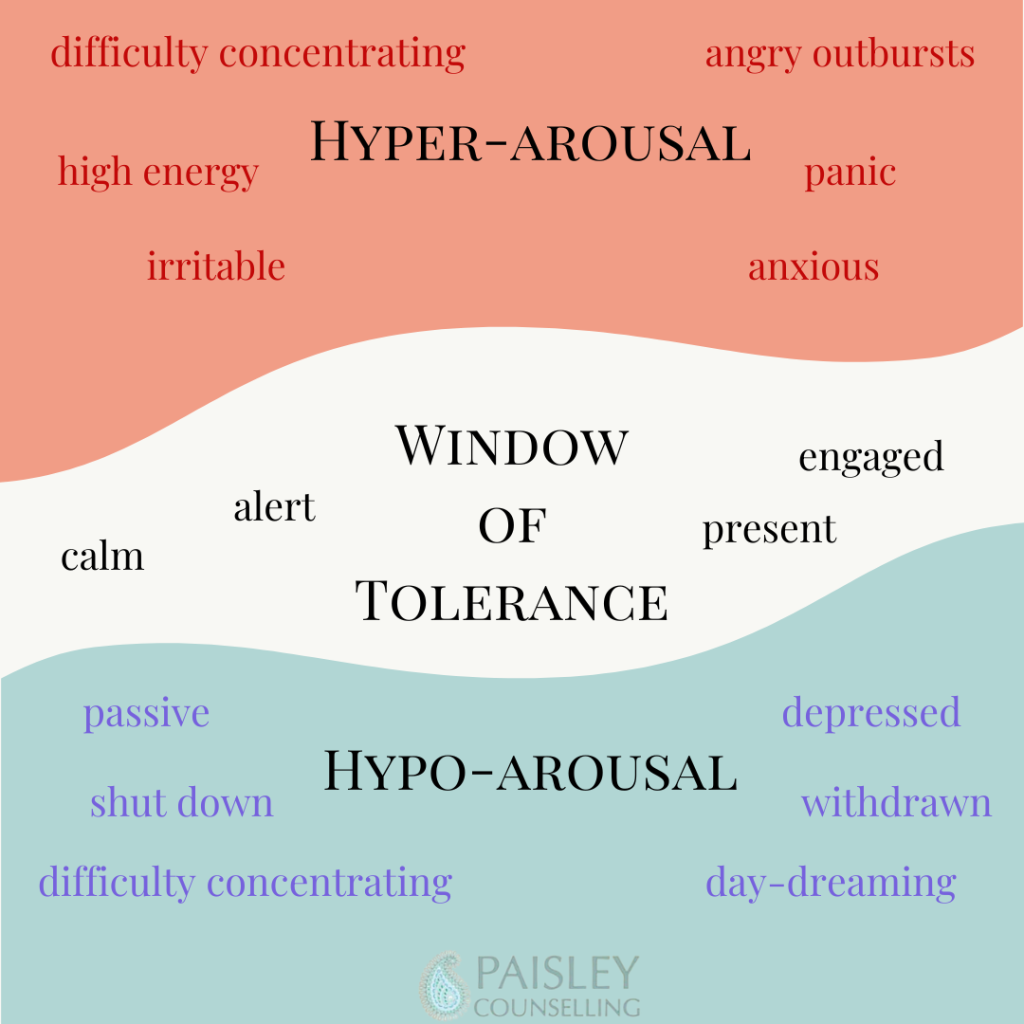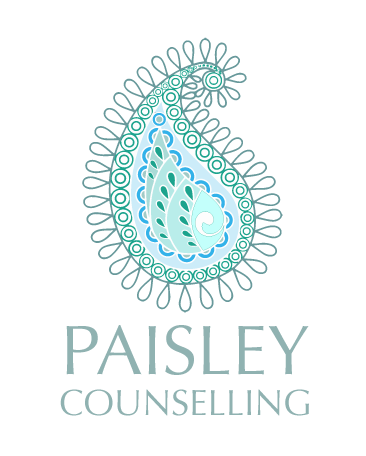Written by Vicki McLellan
The Window of Tolerance illustrates the state in which we best tolerate life’s every day demands and stresses.
When we are within our own window of tolerance, we are present and alert. We can engage with others and respond in a calm and considered manner, with skills to self soothe and regulate our emotional state.
However, when we are dysregulated, we are pushed out of our window of tolerance into either hyper-arousal or hypo-arousal.

Hyper-arousal is a state of excessive energy. You are likely to feel a heightened sense of anxiety, which may make you highly sensitive and reactive. The fight or flight responses are activated and you may experience symptoms such as:
anxiety, panic, fear, hypervigilance, angry outbursts, sleep problems and difficulty concentrating.
Hypo-arousal, in contrast, is a state of very low energy as a result of the freeze response. You may experience:
numbness, lack of energy, inability to think or respond, reduced physical movement, low appetite, excessive tiredness and difficulty processing thoughts and emotions.
For people who have experienced trauma or cumulative toxic stresses, their window of tolerance can become very narrow. Consequently, they will often find themselves in either hyper-arousal (fight or flight) or hypo-arousal (freeze) state.
As dysregulation feels incredibly uncomfortable, we unconsciously develop protective defences to bring us back within our Window of Tolerance. Unfortunately, they can become very problematic when, later in life they end up causing us harm.
For example, as it is intolerable for a child to believe their caregivers are ‘bad’, they internalise the ‘badness’ and develop the belief that they are ‘bad’. When this decision has been made early in life and reinforced through cumulative experiences, it is likely that they will carry this belief and defence into adult life. Although it helped them survive childhood, it no longer serves in the same way in adulthood.
Counselling which focuses on processing trauma and painful memories without being flooded or overwhelmed helps to widen the window of tolerance; the client sees that those defences they created are parts of them created to survive but are not helpful or necessary now.

